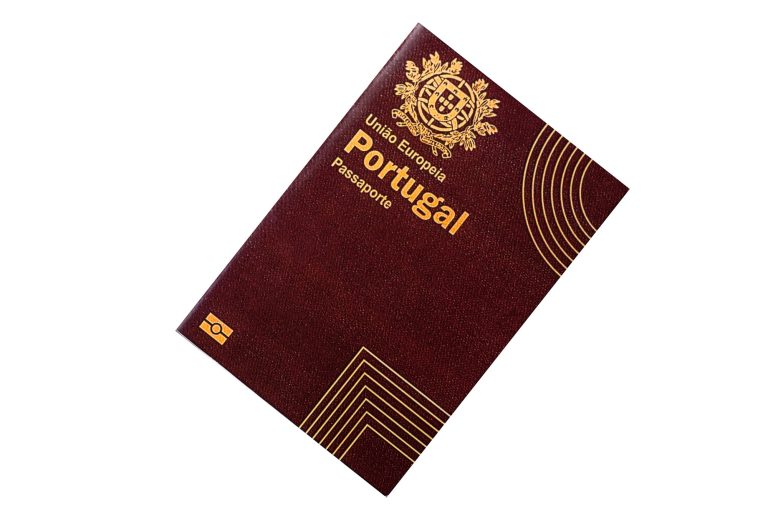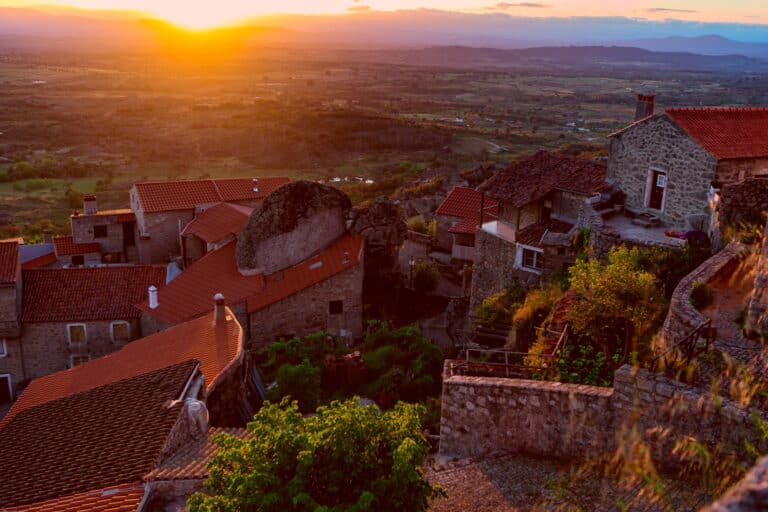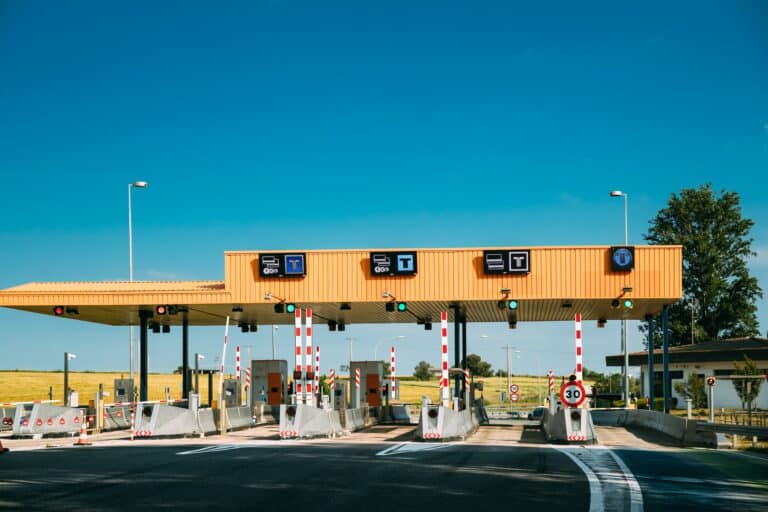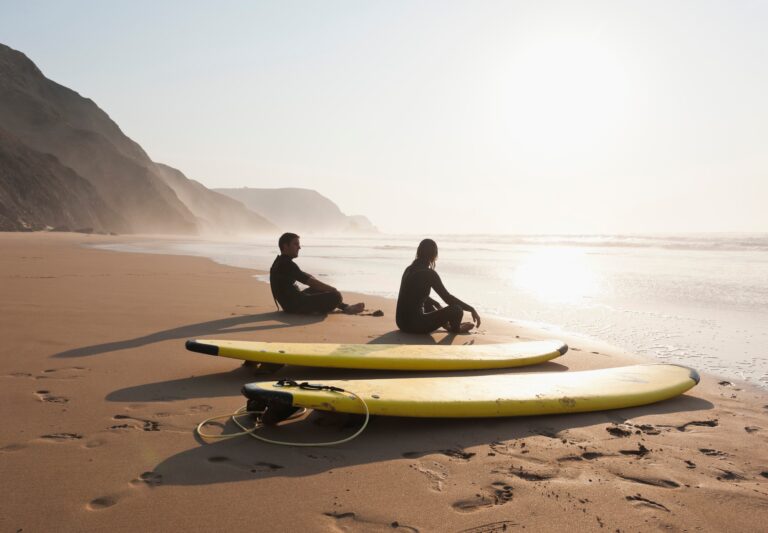Cost of Building a House in Portugal: Complete 2025 Price Guide for Expats
Planning to build your dream home in Portugal? Construction costs in 2025 range from €1,314 to €3,500 per square meter, with dramatic regional variations that can save you tens of thousands of euros. Labor shortages have pushed wages up by 8.1% annually, fundamentally reshaping the construction landscape. Understanding these dynamics is crucial for expats navigating Portugal’s building market.

Current Construction Costs Across Portugal
Building a house in Portugal has become significantly more expensive, with costs rising 30% over the past three years. The average construction price per square meter in 2025 stands at €1,314 for basic builds in rural areas, climbing to €3,500 for luxury properties in prime coastal locations. These figures represent pure construction costs, excluding land purchase, which varies dramatically by region.
The construction industry faces unprecedented challenges. A chronic shortage of 70,000 workers has driven labor costs up by 8.1% annually, while material prices have actually decreased by 0.3%. This unusual dynamic means labor now represents 60-70% of total construction costs, compared to 45-50% historically. For a standard 200m² family home, you’re looking at construction costs between €262,800 and €700,000, depending on location and specifications.
Understanding these baseline costs is essential for realistic budgeting. Many expats underestimate the total investment required, focusing only on construction quotes without factoring in the substantial additional expenses that can add 30-45% to the final bill. Access Portugal regularly assists clients in developing comprehensive budgets that account for all aspects of the building process.
Regional Price Variations: Where to Build for Less
Portugal’s construction costs vary dramatically between regions, creating distinct investment zones with different value propositions. Lisbon commands the highest prices at €2,700-€3,200 per m² for standard construction, reaching €3,500 per m² for premium builds. The capital’s high demand, limited space, and concentration of skilled workers drive these premium rates. 🏗️
Porto follows closely with construction costs of €2,000-€2,800 per m², benefiting from a robust local construction industry but facing similar urban pressures. The Algarve, Portugal’s premier tourist destination, sees costs ranging from €2,200 to over €3,500 per m² for coastal properties, with luxury builds in areas like Quinta do Lago exceeding €4,000 per m².
Cost-Effective Interior Regions
Interior regions offer exceptional value for budget-conscious builders:
- Alentejo: €1,314-€1,800 per m² for standard construction
- Centro Region: €1,400-€2,000 per m²
- Northern Interior: €1,350-€1,900 per m²
- Silver Coast: €1,800-€2,400 per m² (coastal access without Algarve prices)
These inland areas benefit from lower land costs (€100-€300 per m² versus €1,000+ in prime coastal zones), reduced labor competition, and simpler logistics. A 200m² house that costs €640,000 to build in Lisbon might cost just €360,000 in Alentejo – a saving of €280,000 for essentially the same property.
The urban-rural divide extends beyond base costs. Urban construction faces additional challenges including restricted access, parking limitations for materials, and stricter noise regulations that can extend project timelines by 20-30%. Rural builds enjoy more flexibility but may incur higher costs for utility connections and material transport.
Labor Crisis Impact on Building Costs
Portugal’s construction sector faces its most severe labor shortage in decades, fundamentally altering project economics. With 70,000 unfilled positions, the industry struggles to meet demand despite offering average annual wages of €23,269 – a figure that has risen 8.1% year-on-year. This wage inflation represents the single largest driver of increased construction costs.
The shortage stems from multiple factors. An aging workforce sees experienced craftsmen retiring without adequate replacement. Young Portuguese workers increasingly pursue higher education or emigrate for better opportunities. Vocational training programs have failed to keep pace with demand, particularly for specialized trades like stonemasons and traditional tile setters.
Regional wage variations compound the challenge:
- Lisbon: €12-15 per hour for general construction workers
- Porto: €11-14 per hour
- Algarve: €11-13 per hour (with seasonal peaks)
- Interior regions: €9-11 per hour
Skilled trades command significant premiums. Master electricians earn €20-25 per hour, while experienced tile setters can charge €30+ per hour. These rates have increased 15-20% since 2023, with no signs of stabilization. Immigration provides partial relief, particularly from Brazil and Eastern Europe, but language barriers and certification requirements limit integration.
The labor shortage impacts more than just costs. Project timelines have extended by 30-40% as contractors juggle multiple sites with limited crews. Quality concerns arise as inexperienced workers fill gaps. Access Portugal recommends working with established contractors who maintain stable work crews, even if their rates are slightly higher.
Types of Construction and Material Costs
Choosing the right construction method significantly impacts both costs and timelines. Traditional Portuguese construction using stone masonry and clay tiles remains popular for its aesthetic appeal and thermal properties, costing €800-€1,500 per m². However, finding skilled craftsmen for traditional techniques becomes increasingly difficult, potentially extending project timelines by months.
Modern Construction Methods
Contemporary building techniques offer efficiency and predictability:
Concrete Block Construction: €1,200-€2,500 per m²
- Most common method in Portugal
- Faster than traditional stone construction
- Good thermal mass properties
- Wide availability of materials and workers
Prefabricated/Modular Homes: €800-€1,200 per m²
- Construction time reduced from 12-18 months to 6-10 months
- Factory quality control ensures consistency
- 50% less construction waste
- Leading companies like Discovercasa and Cosquel offer turnkey solutions
Steel Frame Construction: €1,100-€2,000 per m²
- Excellent for modern architectural designs
- Earthquake-resistant properties
- Faster assembly but requires specialized crews
Eco-Friendly Building Options
Sustainable construction adds 15-30% to base costs but offers long-term benefits:
- Passive House Standard: €1,500-€3,500 per m²
- Cork Insulation: Adds €20-30 per m² but provides excellent thermal performance
- Solar Integration: €5,000-€15,000 for residential systems
- Rainwater Harvesting: €3,000-€8,000 installation
A 150m² prefabricated house costs €155,800-€193,930 complete, including foundation, assembly, and basic finishes. This represents significant savings versus traditional construction while maintaining quality standards. Access Portugal connects clients with certified prefab suppliers and manages the entire installation process.
Essential Permits and Legal Requirements
Portugal’s construction permit landscape transformed dramatically with the Urban Simplex reform (Decree-Law 10/2024), effective March 2024. This revolutionary change replaced traditional building permits with payment receipts and introduced automatic approval timelines, significantly accelerating project starts.
New Permit System Benefits
The reformed system offers several advantages:
- Projects under 300m² receive tacit approval within 120 days if authorities don’t respond
- Larger projects have 150-200 day approval windows
- Municipalities cannot request documentation beyond legal requirements
- Standardized processes across all 308 Portuguese municipalities
- Electronic platform PEPU launches January 2026 for further streamlining
Municipal fees remain at 3-5% of total construction budgets. For a €300,000 construction project, expect permit fees of €9,000-€15,000. Additional mandatory costs include:
- Energy Performance Certificate: €28-€65 for residential properties
- Technical project approval: €2,000-€5,000
- Construction site license: €500-€1,500
- Occupancy permit: €300-€800
All new buildings must meet Nearly Zero Energy Building (NZEB) standards. Non-compliance penalties range from €250 to €44,890, making proper planning essential. The new regulations particularly benefit smaller projects, with simplified procedures for renovations and extensions under 50m².
Working with professionals familiar with the new system proves invaluable. Access Portugal’s team navigates these requirements daily, ensuring compliance while maximizing the efficiency gains offered by Urban Simplex reforms. Our visa services often complement construction projects for clients establishing Portuguese residency.
Hidden Costs That Impact Your Budget
Building costs extend far beyond basic construction, with additional expenses typically adding 30-45% to initial quotes. Understanding these hidden costs prevents budget overruns and project delays. Many expats focus solely on per-square-meter construction prices, overlooking substantial additional investments required for a complete, livable home.
Site Preparation and Infrastructure
Before construction begins, several preparatory costs arise:
- Topographical Survey: €1,000-€2,000
- Soil Testing: €1,500-€3,000
- Land Clearing: €2-€5 per m²
- Temporary Access Roads: €3,000-€10,000
- Site Security Fencing: €50-€80 per linear meter
Utility Connections
Connecting to essential services represents major expenses:
Electricity: €1,000 per 100 meters of cable from nearest connection point. Rural properties may face €10,000+ for extended runs.
Water Supply: Municipal connections cost €2,000-€5,000. Wells or boreholes add €5,000-€15,000 including pumps and filtration.
Sewage System: €3,000-€8,000 for properties without municipal access. Septic systems require additional permitting and periodic maintenance.
Telecommunications: Fiber optic installation €500-€2,000, depending on distance from existing infrastructure.
Quality Upgrades and Finishes
Base construction quotes typically include basic finishes. Quality upgrades significantly impact final costs:
- Kitchen: Basic €5,000 vs. Premium €25,000+
- Bathrooms: €2,000 per basic bathroom vs. €8,000+ for luxury fittings
- Flooring: Ceramic €25/m² vs. Natural stone €80-€150/m²
- Windows: Basic aluminum €200/m² vs. High-performance €400-€600/m²
These upgrades easily add €50,000-€100,000 to a medium-sized home. Access Portugal helps clients prioritize investments, focusing on elements difficult to change later while identifying areas for future upgrades.
Professional Services and Management Fees
Professional oversight transforms complex construction projects from stressful ordeals into manageable investments. While these services represent significant costs, they typically save money by preventing expensive mistakes and ensuring quality outcomes. 📊
Architect Fees
Portuguese law requires architectural approval for most construction projects. Fees typically range:
- Basic Design: 5-8% of construction cost
- Full Service: 10-15% including project management
- Renowned Architects: 15-20% for signature designs
For a €400,000 construction project, architectural fees range from €20,000-€60,000. This investment ensures code compliance, optimizes space utilization, and creates homes suited to Portugal’s climate and lifestyle.
Project Management
Engaging a dedicated project manager proves essential, particularly for expats managing construction remotely:
- Cost: 10-15% of construction budget (€40,000-€60,000 for a 200m² house)
- Services: Contractor coordination, quality control, timeline management, budget oversight
- Benefits: Prevents miscommunication, ensures standards compliance, manages payments
Additional Professional Services
- Structural Engineer: €3,000-€8,000
- Electrical/Plumbing Design: €2,000-€5,000 each
- Landscape Architect: €5,000-€15,000
- Interior Designer: 10-15% of furniture/finishing budget
- Legal Services: €2,000-€5,000 for contract review and dispute resolution
Bilingual professionals command 10-20% premiums but prove invaluable for international clients. Access Portugal maintains a network of trusted professionals, facilitating communication and ensuring project success. Our comprehensive moving services often coordinate with construction projects for seamless relocation.
Smart Strategies for Expat Builders
Successfully building in Portugal requires strategic planning and local expertise. Expats face unique challenges including language barriers, unfamiliar regulations, and different construction standards. However, with proper preparation, building your Portuguese dream home becomes an achievable goal.
Pre-Construction Planning
Thorough preparation prevents costly mistakes:
- Visit Sites in Different Seasons: Properties accessible in summer may become challenging during winter rains
- Understand Local Restrictions: Some municipalities have strict architectural guidelines preserving local character
- Verify Utility Availability: Rural properties may lack infrastructure assumed standard elsewhere
- Research Contractors Thoroughly: Check IMPIC database for licensed professionals and request references
Financial Strategies
Smart financial planning protects your investment:
- Budget 15-20% Contingency: Unexpected issues always arise
- Structure Payment Schedules: Tie payments to completed milestones, never pay large advances
- Consider Currency Hedging: For international transfers, protect against exchange rate fluctuations
- Maintain Separate Project Account: Simplifies accounting and prevents fund commingling
Common Pitfalls to Avoid
Learn from others’ mistakes:
❌ Hiring Unlicensed Contractors: Seems cheaper but risks legal issues and poor quality
❌ Ignoring Energy Efficiency: Minimal extra investment yields significant long-term savings
❌ Underestimating Timelines: Portuguese construction rarely finishes on initial schedules
❌ Skipping Professional Surveys: €1,500 surveys prevent €50,000 boundary disputes
Maximizing Value
Strategic decisions enhance investment returns:
- Choose Growth Regions: Areas with planned infrastructure improvements offer appreciation potential
- Incorporate Rental Potential: Design flexibility for future vacation rental income
- Focus on Energy Efficiency: Reduces operating costs and increases resale value
- Document Everything: Comprehensive records simplify future sales and tax matters
Access Portugal’s experience helping hundreds of expats build homes provides invaluable insights. We coordinate with immigration services for clients establishing permanent residence through property investment.
Frequently Asked Questions
How long does it take to build a house in Portugal?
Traditional construction typically takes 12-18 months from breaking ground to completion. Prefabricated homes reduce this to 6-10 months. However, permit acquisition can add 3-6 months before construction begins. The new Urban Simplex reforms have shortened approval times significantly, with automatic approvals after 120 days for smaller projects.
Can foreigners build houses in Portugal?
Yes, foreigners have the same property rights as Portuguese citizens. You’ll need a Portuguese tax number (NIF) and may benefit from opening a Portuguese bank account for easier transactions. Many expats build while establishing residency through various visa programs.
What’s the cheapest region to build in Portugal?
Interior regions like Alentejo and Centro offer the lowest construction costs, starting at €1,314 per m². These areas also feature affordable land prices and a lower cost of living. However, consider accessibility to amenities and potential resale values when choosing remote locations.
Do I need insurance during construction?
Yes, construction insurance is mandatory and typically costs 0.5-1% of the project value. This covers accidents, material damage, and liability issues. Additionally, builders must provide 5-year structural warranties and 2-year warranties on finishes under Portuguese law.
How do construction costs in Portugal compare to other EU countries?
Portugal remains competitive within Western Europe. Construction costs are 20-30% lower than in France or Germany, similar to Spain, but 40-50% higher than Eastern European countries. The combination of EU standards, favorable climate, and residency benefits makes Portugal attractive despite recent price increases.
What are the tax implications of building a house?
New construction incurs 23% VAT on materials and services. However, primary residences may qualify for reduced rates on certain items. Property transfer tax (IMT) doesn’t apply to new construction on owned land. Annual property tax (IMI) rates range from 0.3-0.8% of tax authority valuations.
Should I use a Portuguese or international contractor?
Portuguese contractors understand local regulations and have established supplier relationships. International contractors may offer familiar working methods but often charge premiums. The best approach combines Portuguese construction expertise with project management that bridges cultural and language gaps.
How accurate are initial construction quotes?
Initial quotes often underestimate final costs by 20-30%. Ensure quotes include detailed specifications and clarify what’s excluded. Fixed-price contracts protect against overruns but may include higher margins. Regular cost reviews during construction prevent surprises.
Building a house in Portugal in 2025 presents both challenges and opportunities. While construction costs have risen significantly due to labor shortages and increased demand, strategic choices regarding location, construction methods, and professional support can yield excellent value. Interior regions offer savings of 40-50% compared to coastal areas, while modern construction techniques like prefabrication reduce both costs and timelines.
Success requires comprehensive budgeting that accounts for the 30-45% in additional costs beyond basic construction, from professional fees to utility connections. The new Urban Simplex reforms have simplified permitting, but navigating Portuguese construction still benefits from local expertise and careful planning.
Access Portugal specializes in guiding international clients through every aspect of building in Portugal, from initial planning through project completion. Our integrated services covering immigration, banking, and insurance ensure a smooth transition to Portuguese property ownership. Contact our team to discuss how we can help make your Portuguese dream home a reality, avoiding common pitfalls while maximizing your investment value. 🏡







